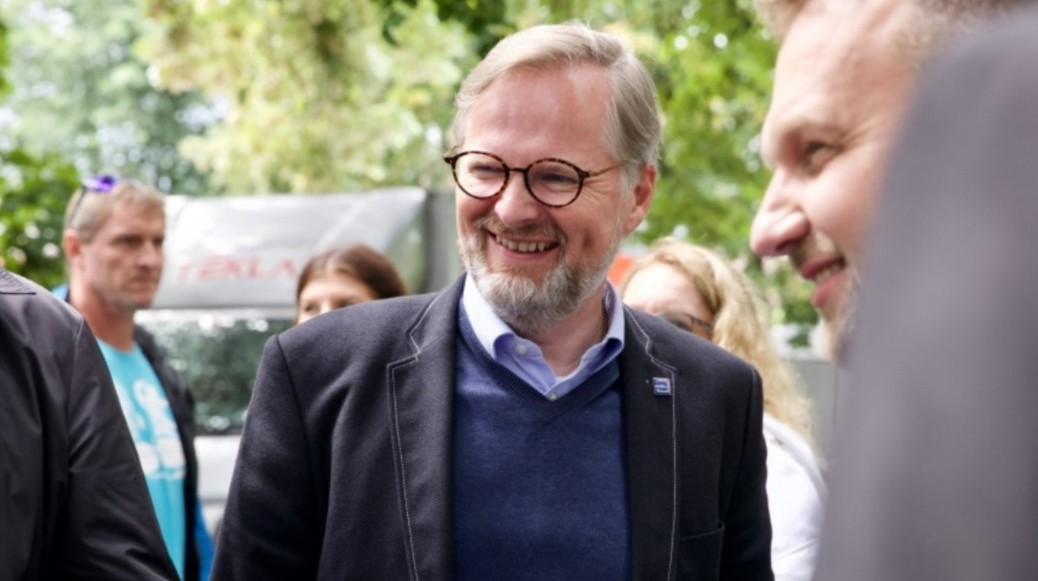Czech Prime Minister Petr Fiala has called for the country to return to normality as soon as possible, citing the country’s Covid-19 testing system accompanied by a five-day quarantine period as a way for Czechs to manage the pandemic without further restrictions that harm the economy and children’s education.
In a wide-ranging interview with the Radiožurnál radio station, Fiala also commented on the Czech-Polish dispute over the Turów mine and showed a willingness to find a compromise on the issue that would still ensure an acceptable quality of life for the Czech residents in the affected area.
Worst case scenarios not fulfilled
Although the onset of the omicron variant is strong and affecting society, Fiala noted that the worst-case scenario has not materialized with the increase in the number of Covid-19 cases not as steep as expected.
The Czech prime minister indicated that there are some backup plans, but so far, it seems that no more stringent measures are necessary.
“I also have to thank the citizens that they are acting responsibly and that the testing is working. Thanks to that, we will continue to manage the epidemic, and the government can proceed as it promised, that is, without a lockdown,” Fiala told listeners.
If the scenarios from countries where the omicron variant has been around for some time will prove to be true in Czechia, and there is no overburdening of hospitals, then there is a chance of relaxing the current measures, he added.
“We have to learn to live with Covid, and we have to return to normal life as soon as possible.”
Compromise is necessary in the Turów issue
In the interview, the Czech leader also discussed the ongoing dispute concerning the Polish Turów mine, indicating that negotiations were continuing but stressed he was reluctant to go into any further detail.
“Let me just say that there remain some issues that have not yet been solved and which are extremely important for the Czech side, and we must unblock them.
“I am convinced that it is in the interest of the Czech Republic and Poland to reach an agreement,” he said, adding that the Czech government is doing everything in its power to reach a suitable agreement.
“We are in contact with Prime Minister Morawiecki and we are not indifferent. We want to reach an agreement that is acceptable to both parties,” stated Fiala.
According to him, the fundamental dispute is now about the amount of compensation. While Czechia demands €50 million and also requires ten years of judicial supervision, Poland has offered €40 million and a maximum of two years of judicial supervision.
When asked if the Czech side would be ready to step back in this dispute, he responded that it is not a question of making concessions but rather an issue of guaranteeing an acceptable quality of life for the Czech population in the concerned area.
“I can imagine a compromise that is acceptable to the Czech Republic, acceptable to the Liberec Region, and acceptable to Poland. It is certainly not in anyone’s interest to not reach an agreement,” he reiterated.
In terms of when the dispute might be over, according to Fiala, it is realistic to close the issue in a matter of weeks.






